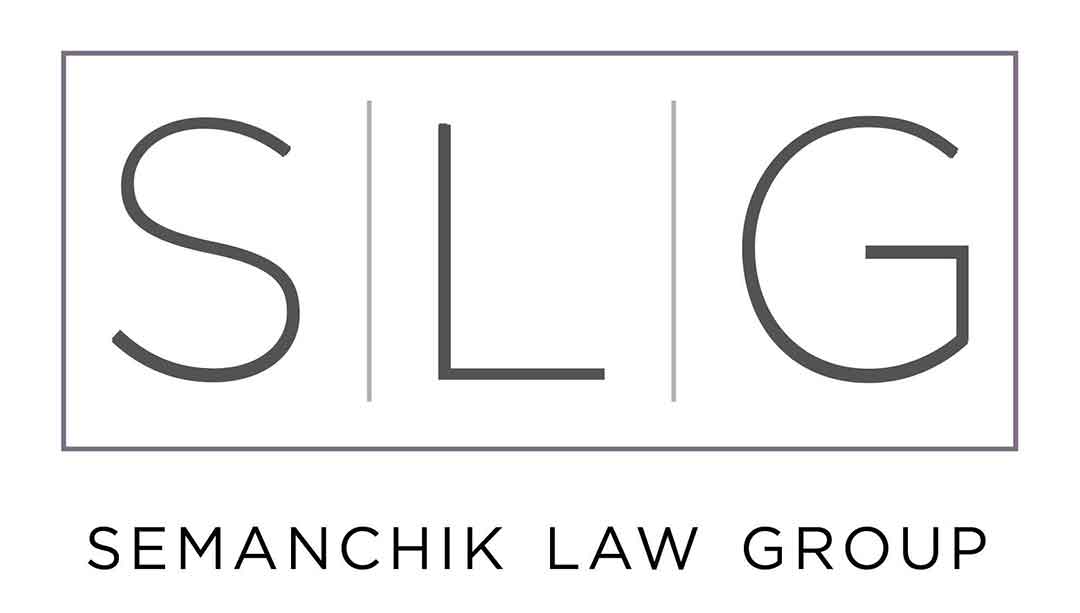How do you form a nonprofit in the State of California?
California nonprofit formation begins by filing Articles of Incorporation with the California Secretary of State. The language that is contained in these Articles is very important because it will determine whether the nonprofit will be able to obtain tax-exempt status with the IRS, Franchise Tax Board, and Board of Equalization. If you wish to ensure that the formation process runs smoothly, we recommend having an experienced nonprofit law firm like the Semanchik Law Group draft and file the documentation on your behalf.
 In California, there are three types of nonprofit corporations:
In California, there are three types of nonprofit corporations:
- California public benefit corporations
- California mutual benefit corporations
- California nonprofit religious corporations
Each entity type is governed by a separate section of the California corporations code and has different legal requirements.
SLG is able to assist with all aspects of the formation of a nonprofit. The nonprofit formation process is broken down into the following steps:
- Formation of Nonprofit Corporation
- IRS Exemption Process
- State Exemption Process
- Attorney General Registration
What are the next steps in the California nonprofit formation process?
Once a nonprofit has been formed by filing Articles of Incorporation with the Secretary of State, there are several more steps to take before the organization can open its doors, including:
Naming a Board of Directors
When it is first formed, your nonprofit will then need to select a board of directors to govern the organization. It will also need to choose officers to manage the day-to-day operations. The IRS recommends that a nonprofit organization have at least (3) three board members. If needed, the Semanchik Law Group can help you select, vet, and formally appoint the necessary board members to your nonprofit organization.
Securing an Employer Identification Number
An employee identification number is like a social security number for a business and must be obtained in order to hire employees, open a bank account or obtain tax exempt status. After your nonprofit is formed, one of the next steps is obtaining an employee identification number. As part of the nonprofit formation process, Semanchik Law Group will obtain an employee identification number for your nonprofit.
Navigating the IRS Exemption Process
To become a tax-exempt organization, your nonprofit must first file an application with the IRS. This process involves providing the government with details about your directors, the structure of your organization, and the activities that you intend to engage in. Some organization may be apply to apply for tax exemption by using the form 1023EZ while others will need to complete the full 1023 application. The full 1023 application is a fact intensive application that requires your nonprofit to prove to the IRS that you qualify for 501(c)(3) status. The application process can be quite daunting and the IRS actually suggests that it can take a novice over 100 hours to prepare the 1032 application. Providing Inaccurate or erroneous information can cause your application to be denied. Additionally, if the application is missing important information the IRS will ask additional questions which will cause the approval of your application to be delayed significantly. At Semanchik law Group we prepare the 1023 on your behalf. Our simple and streamlined process allows us to gather information from you so we can prepare the application and you can start working on the more important aspects of running your nonprofit. We handle all of the paperwork and guides you through the process so that you have a strong and detailed 1023 application that fully reflects your nonprofit’s activities.
Navigating the California Exemption Process
Unfortunately, being recognized as a tax-exempt organization by the federal government does not mean that you are automatically granted that same status by the state of California. To obtain state tax-exempt status, your nonprofit will need to submit a separate application to the Franchise Tax Board. At Semanchik Law Group our formation process includes ensuring that your nonprofit has tax exempt status in California.
Filing a Registration Form with the California Attorney General
Submitting a registration form to the California Attorney General is one of the final steps your nonprofit will need to take before it can begin operating in earnest. This process will require you to provide your employer identification number, the names and addresses of your directors, and a description of your organization’s primary activities. At Semanchik Law Group our experienced nonprofit attorneys make sure this important process is completed and ensure that you understand what will need to be filed with the Attorney General’s office on an annual basis so that your nonprofit is set up for success from the beginning.
Creating Governing Bylaws for the Nonprofit
Bylaws are the governing rules of your nonprofit. To avoid any potential issues, it is vital that your bylaws are kept up to date and meet the requirements of the California Corporations Code. Your bylaws should also be reviewed by the board of directors periodically to determine whether they need to be updated and whether they impose unreasonable restrictions on the nonprofit that are not being met.
An example of this is a nonprofit that has bylaws creating term limits for its directors. If the nonprofit does not comply with these term limits, having bylaws that create these restrictions could cause serious governance issues down the road if someone were to dispute a director’s term. As part of the formation process, your Semanchik Law Group nonprofit lawyer will provide you with comprehensive bylaws that will fit your organization’s needs.
How long does it take to start a California nonprofit?
The time it will take to form a nonprofit organization will largely depend on the complexity of its structure. For fairly simple organizations, the formation process can take as little as a few weeks. On the other hand, the creation of larger, more complicated nonprofits can take months to move through the state and federal systems. A brief consultation with a Semanchik Law Group attorney should give you a better idea of how long it will take to found your California nonprofit.
How much does it cost to have an experienced nonprofit lawyer help with the formation of a California nonprofit?
At the Semanchik Law Group, we operate on an affordable flat-fee basis. This fee may increase slightly if your proposed nonprofit is particularly complex or your applications require additional work, but can be broken down into installments if necessary. We can provide you with more information about your fees at your initial consultation.
Select an Attorney that Understands Nonprofit Law
It is essential to have an experienced nonprofit attorney assist with the formation of your nonprofit organization. At the Semanchik Law Group in San Diego, we take the time to guide you through the formation and exemption process. We ensure that you understand the unique tax implications of operating a nonprofit as well as the importance of proper governance and compliance. Having an attorney that truly understands nonprofit law ensures that your organization will be set up to succeed. We understand that your time is better spent serving your charitable mission and we hope to make the formation and exemption process as easy and informative as possible.
Give us a call today at (619) 535-1811 to schedule a free consultation and take the first steps toward creating your nonprofit organization.
